It was a historic weekend in Hupacasath and Tseshaht territories, as hundreds of people from around the world gathered for the Potlatch for Migratory Salmon to feast, share stories of origin, struggle, and success, to time travel and transform, before signing a historic declaration to protect wild salmon for generations.
The potlatch took place in Port Alberni, a small city with a population of 20,000, on Vancouver Island. B.C. Canada, on November 1 – 2, 2025, hosted by Ḥupač̓asatḥ Ḥawił Tsu Tsii Chief Tsu-sii-in Alton Watts and Ḥiškiiʔatḥ Elder and artist Aniičačist Tim Paul. The hosts organized the potlatch, with support of friends and allies, to gather people to raise awareness on the impacts of fish farms across the coast, while breathing life into ancestral and cultural teachings.
“We come together to talk about an issue that has been swirling in our seas and has crept into our backyards. We want to do this with love and care, to do this in the right way,” said Tiitiitiskinis Rustee Watts, the emcee for the weekend. “We’re going to bring out the Ancestors, go back to iikmut, time before time, the beginning — to understand who we are, where we come from, and where our teachings come from. We’re here to do good work, on behalf of our relative, the migratory salmon.”
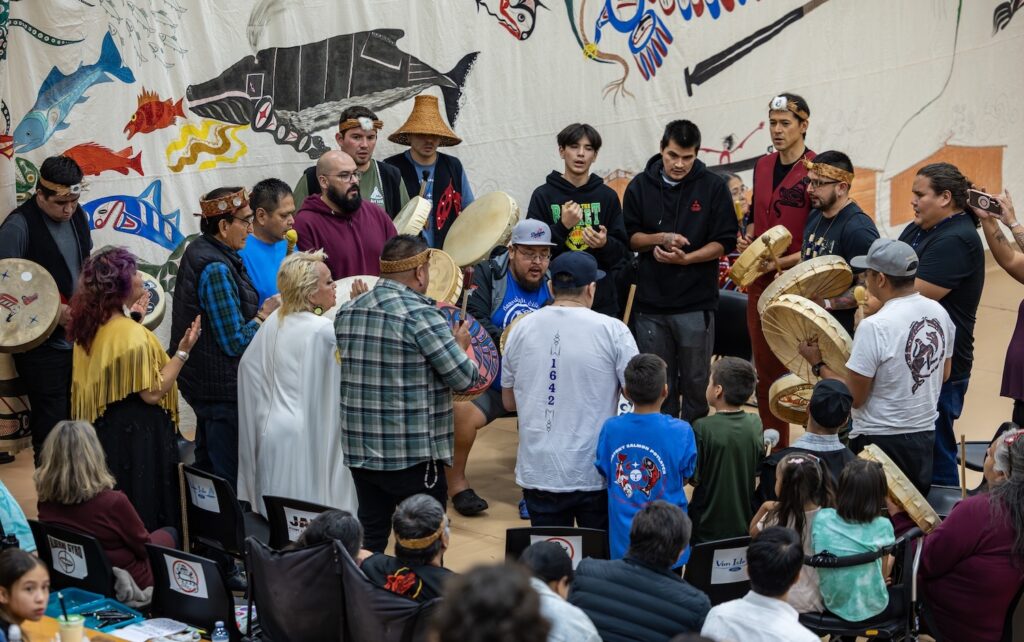
“The Farms Don’t Belong Here”
Open-net fish farms are methods of farming fish in open waters where the fish grow in natural bodies of water, but where the waste, disease, and pollutants are also free to flow and impact wild species. About 70 percent of total global salmon production is raised in these artificial farms.
Guests traveled from as far as Sweden, bringing stories from the Baltic Sea about the impacts of weak regulation laws, overfishing, and the harm of neighboring fish farms, which use ground-up wild fish to feed their stocks. Relatives from the Winnemem Wintu Tribe in Northern California were in attendance, too, sharing stories of sacred connection to their salmon populations, which were decimated after the Shasta Dam was built in 1945, flooding tribal lands, blocking salmon from spawning, and severing the tribe’s connection to an essential part of their culture and existence. The tribe is currently leading efforts to reintroduce winter-run salmon to California’s McCloud River.
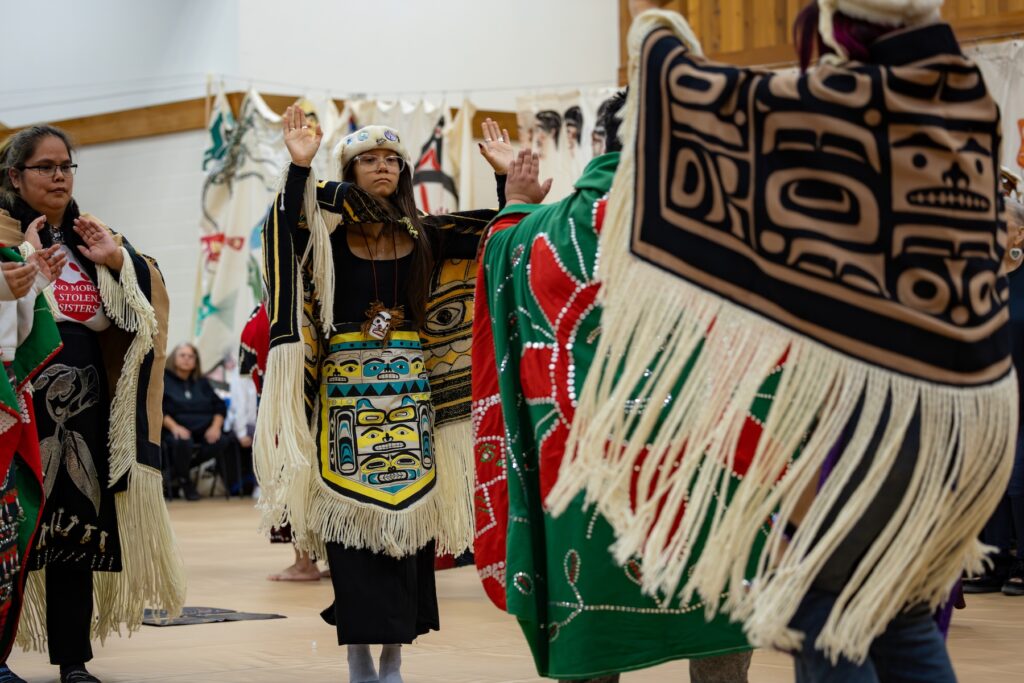
Friends from the interior of British Columbia, from the Sylix and Tsilhqot’in Nations, came with medicines, stories, songs, and dances. Speakers expressed their support for the host Nations and their neighbors, working to protect their lands and waters from the same problems they face against mining, logging, and corporate interests.
Ḥupač̓asatḥ Ḥawił Tsu Tsii Chief Tsu-sii-in Alton Watts, said the issue of the impacts of fish farms must be discussed in the way he was taught by his Elders. “Put on a feast, get people here in a good way, in the open, and deal with it,” he said. “To me, there’s right and wrong, what belongs and what doesn’t belong. Our fish migrate along the coast, go around these fish farms, and get diseases and lice. The farms don’t belong here.”
“Wild salmon is not simply a menu choice for our people. It’s the basis of our culture, our traditions, our attachment and responsibilities to our traditional territories.”
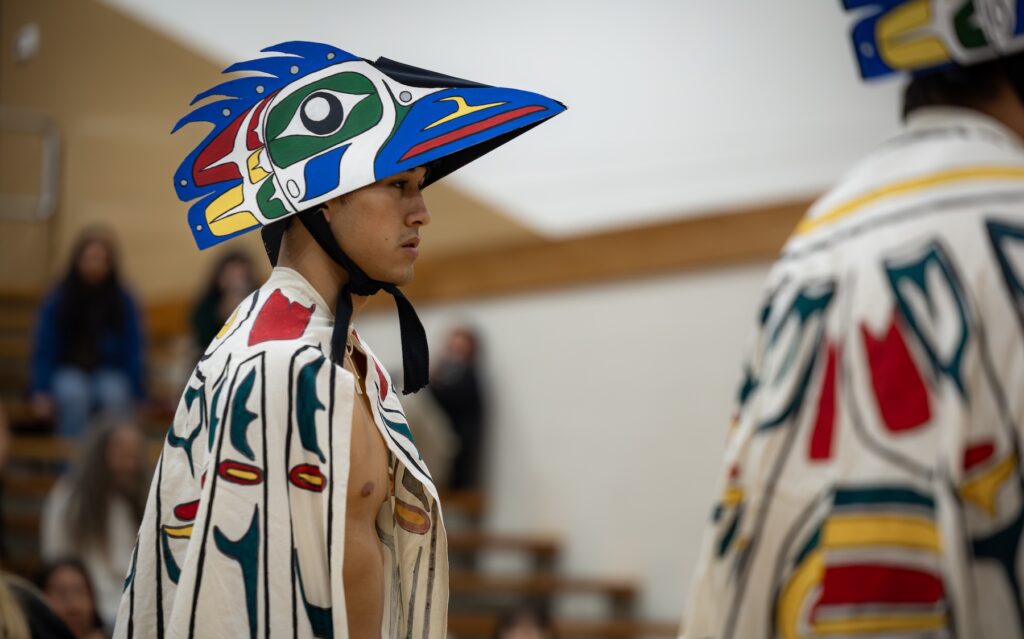
Open-net fish farms have been a cause of concern for First Nations across the coast since they were first placed along wild salmon migration routes in the 1980s.
While the farms started out relatively small on the Pacific Northwest coast, they quickly grew and multiplied, infecting wild salmon and other marine life with diseases, sea lice, and pollutants. The harmful impacts of open-net farms isn’t new and has been documented by First Nations, scientists, and environmentalists for decades.
The farms require multiple layers of authority to operate, including provincial tenures, federal licences, and band council consent, through agreements or benefit-sharing deals. These requirements are layered and controversial, due to concerns over community consultation, inadequate leadership, and conflicts of interest.
Newsletter Sign-up
Sign up for our newsletter to receive inspirational stories about people working to build a bioregional movement across Salmon Nation.
“We Stand With You”
Leaders and representatives from the Tla-o-qui-aht, Hesquiaht, and Ahousaht Nuu-Chah-Nulth Nations shared concerns about fish farms operating in their territories. There are currently over 50 fish farms in B.C.: 24 belong to the world’s leading fish farm company, MOWI, 11 to Grieg Seafood, and 15 to Cermaq salmon farming company.
Łučinƛcuta Mariah Charleson, Chief Councillor of the Hesquiaht First Nation, delivered one of many powerful speeches throughout the weekend. “These fish farms are 24/7 pollutants into our precious waters, our life source that has sustained our people since time immemorial,” she said. “‘Hesquiaht’ means the ‘people of the sound made by eating herring eggs off of eel grass. If the herring disappear, will we still be Hesquiaht?”
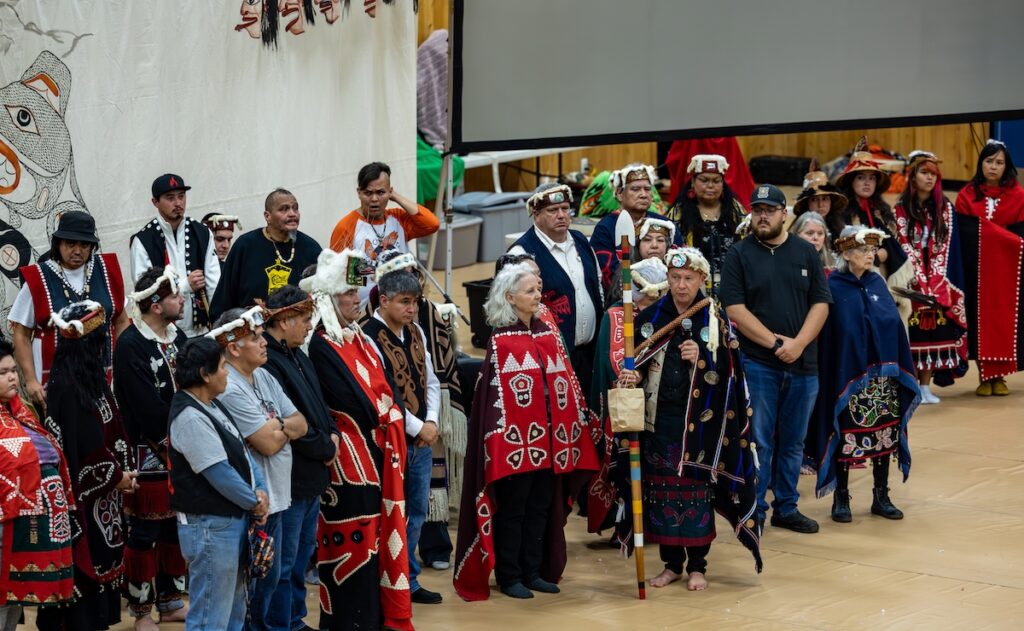
The Hesquiaht community, which is accessible only by boat or float plane, is sandwiched between fish farms from the north and south, and Charleson said they’re seeing impacts to the air and water every day.
“Just the other day I was driving my boat and I was approaching a fish farm. I was a good couple miles away and could smell this rancid stench in the air. I realized it came from that fish farm. I looked in the water and everywhere around was this white milky substance,” she said. “These are the realities. We see this stuff everyday. We heard Ahousaht stand up and say they need our help and we’re here to stand with you, to shut down these fish farms once and for all.”
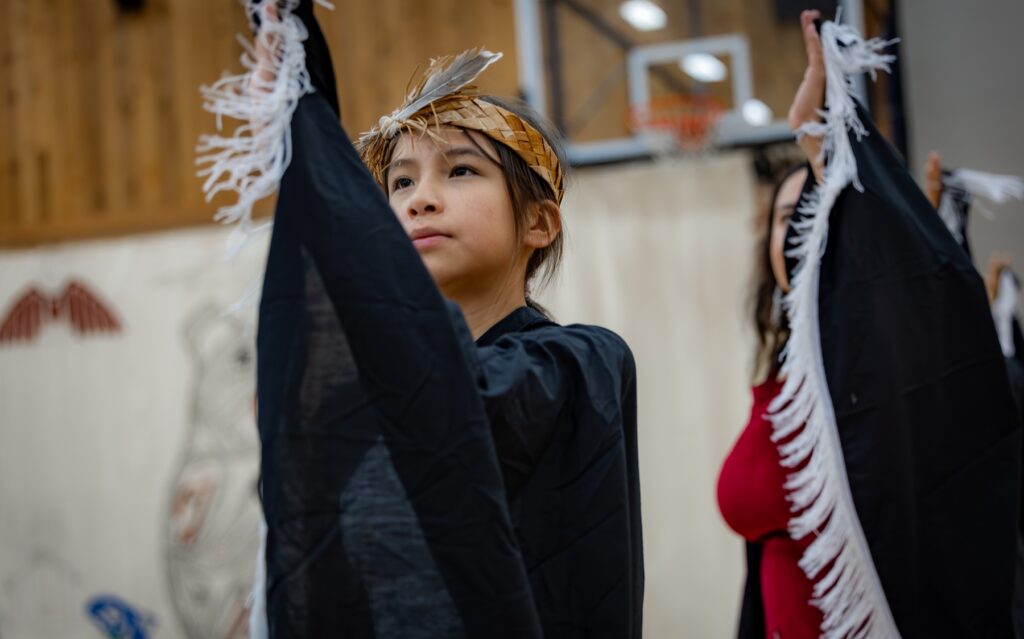
To ground the critical political conversation in ancestral teachings and laws, Ḥiškiiʔatḥ Elder and artist Aniičačist Tim Paul invited guests to travel back to the beginning of time, to their creation stories and to the responsibilities tied to the relatives of the ocean.
“If things go on the way they’re going today, we will never have an invitation from the river inviting us to come up, to take what we need to feed our people and our families,” he said. “We need to rebuild, to put back in place, our roles and responsibilities, our tribal law, to play an important role in how we do things.”
“It’s Our Responsibility”
Bob Chamberlain, chairman of the First Nation Wild Salmon Alliance, said non-Indigenous governments have “for too long ignored the health and abundance of wild salmon.”
“The government needs to understand that wild salmon is not simply a menu choice for our people. It’s the basis of our culture, our traditions, our attachment and responsibilities to our traditional territories,” he said. “I must recognize the previous generations where I come from and their decision decades ago to fight the open net fish farm industry. Our people have stood up without apology. To make it an undeniable situation to the Crown, that this industry is not welcome in our territories.”
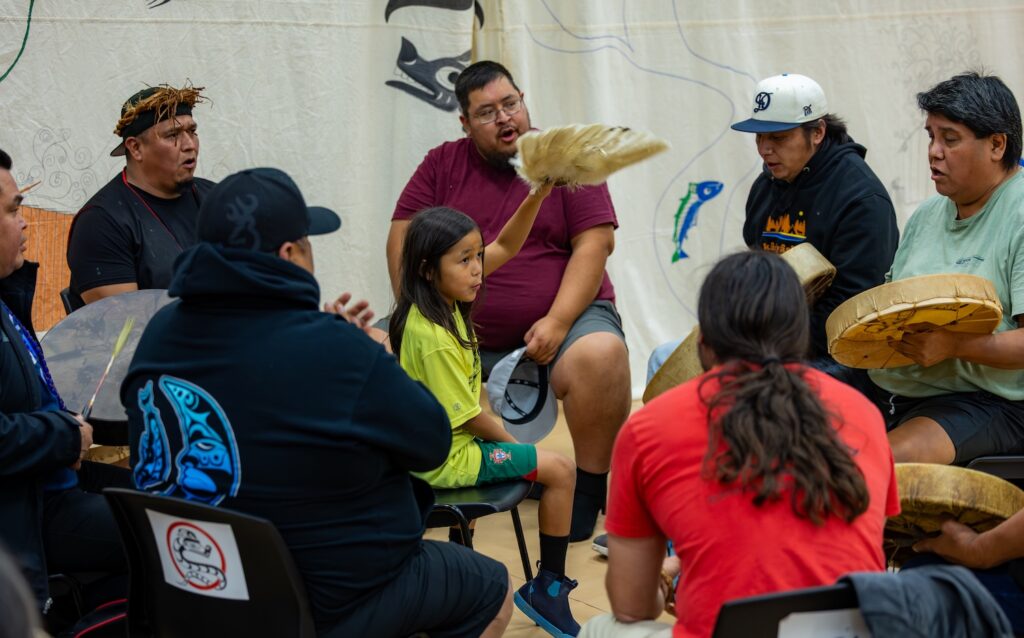
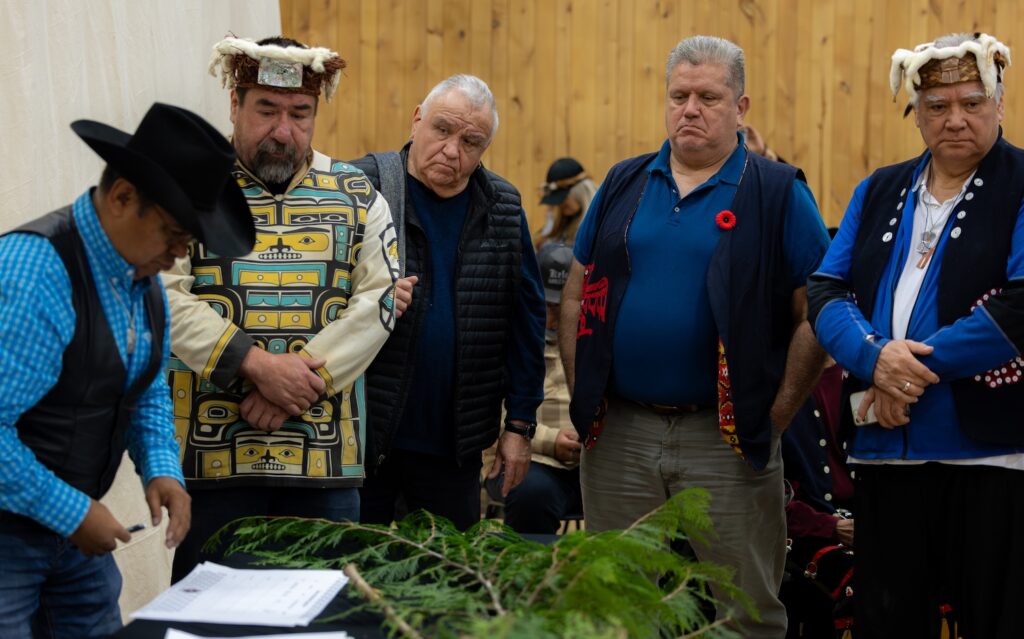
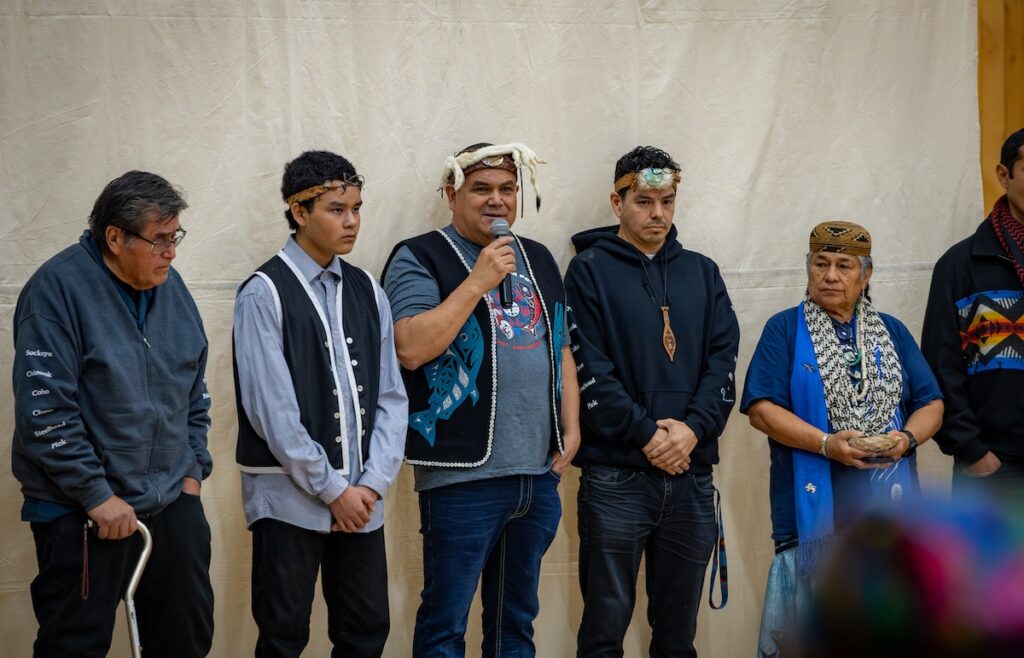
Some stories shared over the weekend were stories of success, particularly from Kwakwaka’wakw relatives who were successful in removing fish farms from their waters. This was made possible by strategic organization at all levels, including an occupation on two separate fish farms which lasted 284 days. The occupations showed First Nations successfully asserting their jurisdiction, enacting their ancestral laws, and protesting a lack of consent for the industry’s activity.
In 2018, the Mamalilikulla, ‘Namgis, and Ḵwiḵwa̱sut’inux̱w Ha̱xwa’mis formally declared “no consent” for open-net farms in their waters in the Broughton Archipelago Park, just north of Vancouver Island.
Together, they began closing 20 farms to restore their wild salmon, signing a historic agreement with the provincial and federal governments, in accordance with the United Nations Declaration on the Rights of Indigenous Peoples (UNDRIP). The parties committed to an orderly transition from the farms.
In 2023, the three Nations declared they would not consent to continued operations of any fish farms in their waters.
“It took hereditary leadership, political leadership, the elected officials, community members, aunties and uncles, and some people willing to stir the pot a little bit.”
During the Migratory Salmon Potlatch, Hereditary Chiefs from the Kwakwaka’wakw Nations shared these hopeful stories, about how they are witnessing first-hand the return of wild salmon to their rivers and ocean, after the removal of the farms.
The delegation gifted the hosts red ochre, a natural red paint they used to paint their story on a rock wall at the same site the first fish farm was established, to mark their peoples’ strength, resilience, and success. Hereditary Chief ‘Maxwiyalidzi K̓odi Nelson, executive director at Nawalakw Healing Society, said the gift of red ochre could be used by the Nations to mark the occasion when they too would rid their waters of the open-net farms.
“We want to leave you with inspiration, with hope that you too can do this in your territory,” Nelson said. “It took a lot of coordination. It took hereditary leadership, political leadership, the elected officials, community members, aunties and uncles, and some people willing to stir the pot a little bit.”
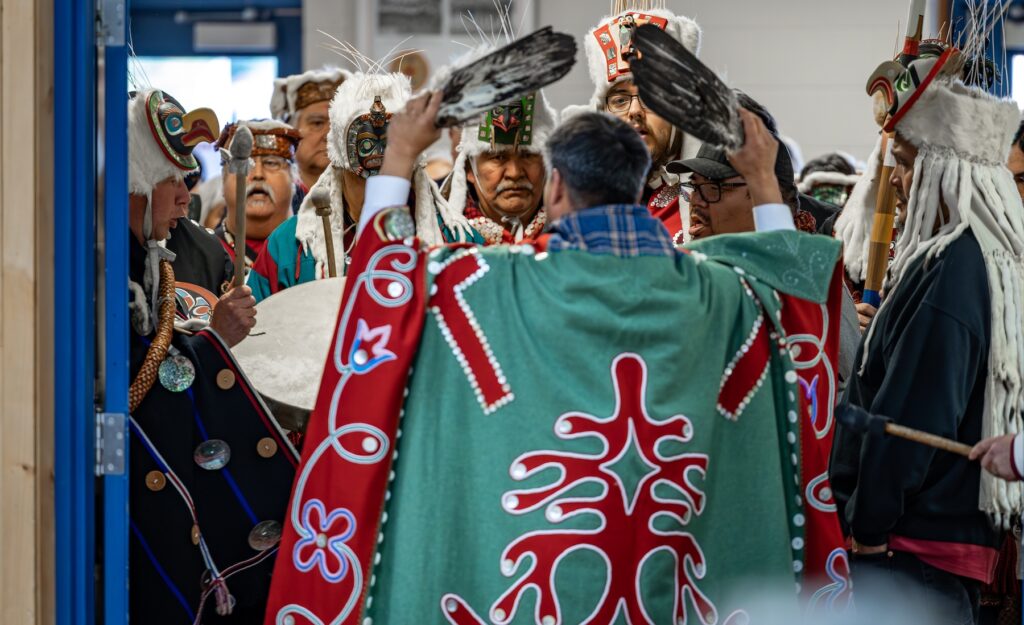
Nelson and the other hereditary Chiefs and leaders shared stories about the positive salmon returns they’re witnessing in their waters and the generative ways it’s impacting and inspiring the community. Closing the fish farms is a crucial part of a larger story, they said, an obvious step in the right direction.
On the second day of the Potlatch, Hereditary Chiefs and community leaders from more than two dozen communities came together to sign an official “Migratory Salmon Declaration,” an enactment of Indigenous ancestral law and a powerful show of solidarity for the movement to remove open net pen fish farms from the ocean. Over 40 Chiefs and community leaders signed the Declaration in front of hundreds of witnesses.
The Declaration is a part of a growing movement to call the federal government to remove all open-net fish farms by 2029. The fish industry continues to lobby the government and has multiple lawsuits against the government’s promise to shut down or phase out the farms.

The two-day potlatch amplified the power of Indigenous governance and law and was a powerful demonstration of solidarity. Through story, song, and dance, Nations showed their interconnection through wild salmon and their migratory routes, while strengthening their collective commitment to do what it takes to uphold the responsibilities laid out by those before them, for the health, wellbeing, and prosperity of those yet to come. You can read the declaration here.
